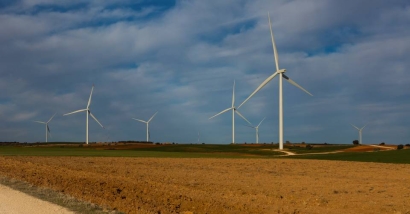
Kraft Heinz is expected to source over 90 gigawatt hours/year of renewable energy from Spanish producer Repsol’s largest wind project, Delta II (Aragon, Spain) – equivalent to powering approximately 90 percent of Kraft Heinz’s European manufacturing sites, which is the majority of its European load.
The vPPA is expected to generate enough renewable electricity to power approximately 25,000 average EU households per year at its peak.
“Our agreement with Repsol is a significant step in our efforts to reduce the impact of climate change,” said Rafael Oliveira, Executive Vice President and President, International Markets at Kraft Heinz. “I am proud of this investment in our International Zone, which we expect to contribute to our global goal of achieving net zero emissions by 2050, and reducing 50 percent of our emissions by 2030, while also helping our industry make the transition to renewable power.”
In 2021, Kraft Heinz announced its goal to achieve net zero greenhouse gas emissions across its operational footprint (Scope 1 and Scope 2) and entire global supply chain (Scope 3) by 2050, reaffirming its commitment to contribute to global efforts to reduce the ongoing threat of climate change.
"This agreement with Kraft Heinz confirms once again the potential and attractiveness of our renewable assets for companies that are looking for guaranteed coverage of their long-term energy needs and, at the same time, obtain greater stability, which favors their competitiveness," said João Costeira, Repsol's Executive Director of Low Carbon Generation.
In December 2019, Repsol was the first company in its sector to make a commitment to be carbon neutral by 2050. Renewable power generation is one of the pillars of Repsol's decarbonization strategy: the targets of the company are 20 gigawatts (“GW”) of installed capacity by 2030 and 6 GW by 2025.

